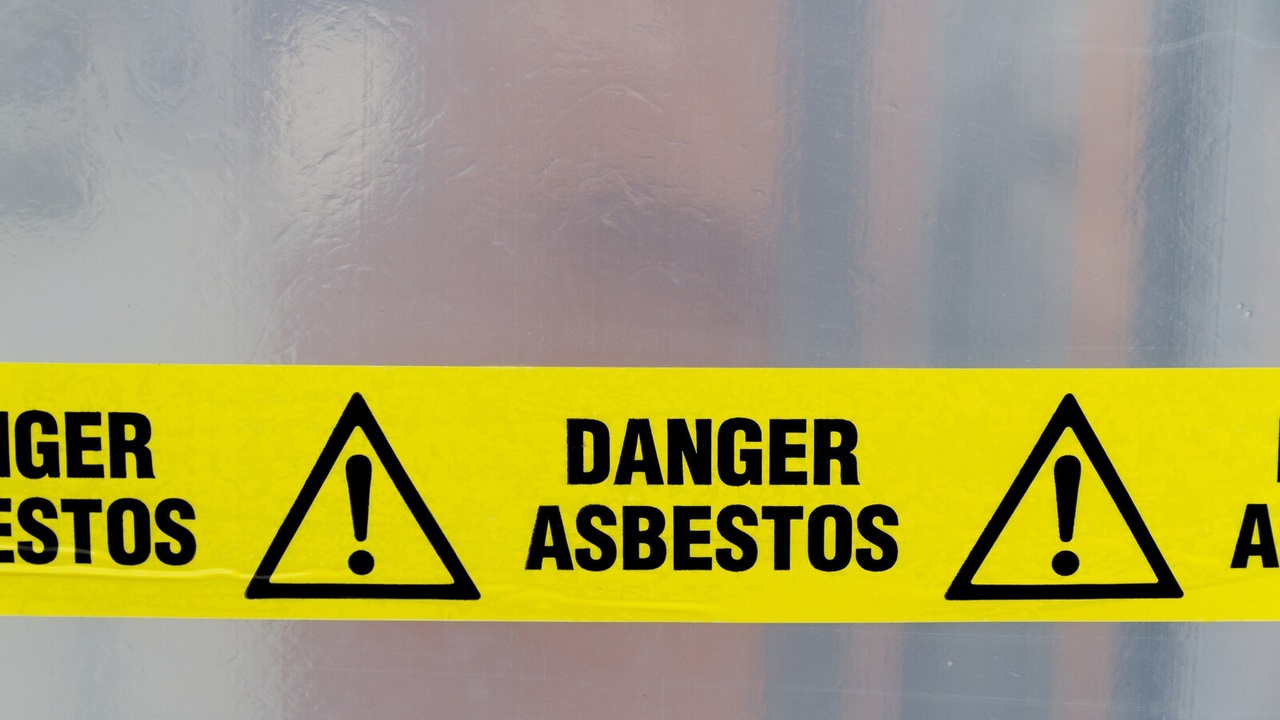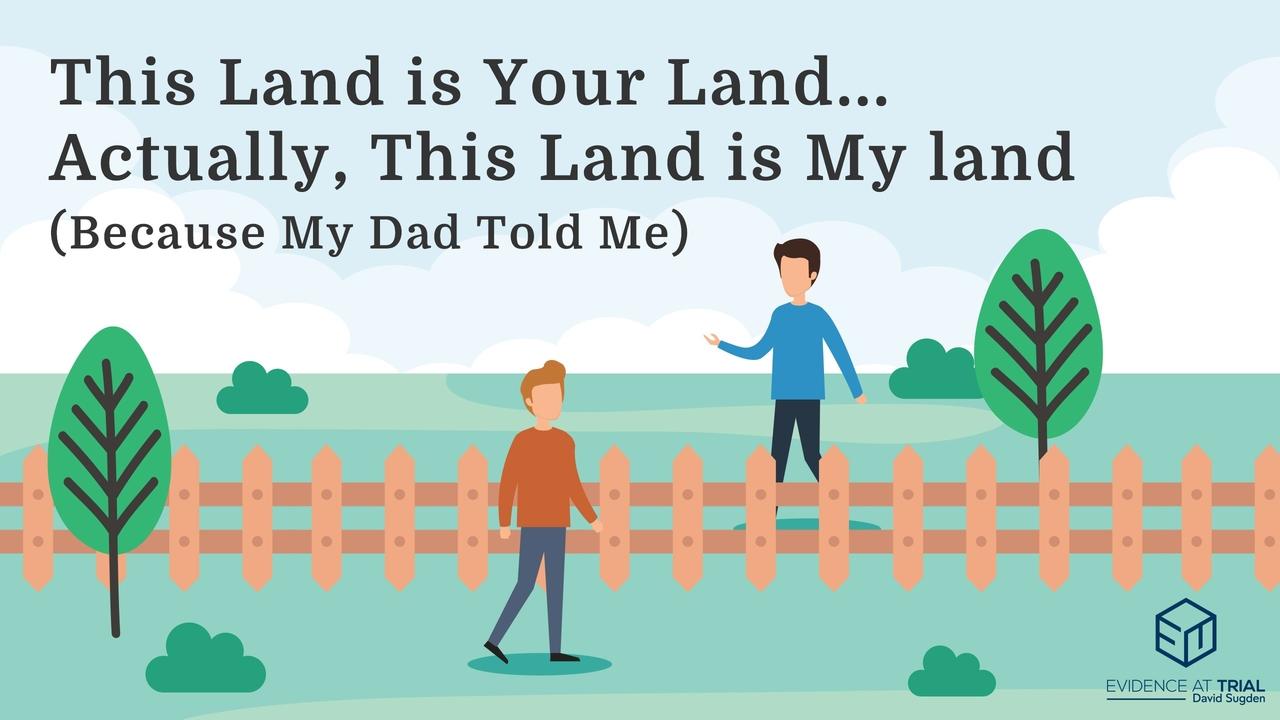Articles
Judicial Notice: Four Must-Know Rules

Back in 1995, the LA Times ran an article about O.J. Simpson's defense team's "assault on the [Los Angeles Police] department's ability to use sophisticated science to solve crimes." One its expert witnesses walked the jury through powerful demonstrative evidence detailing DNA contamination in its crime lab. Beyond the Simpson case, the article quoted a defense attorney who said the witness' testimony "will provide ammunition for years to come for lawyers defending poor clients who don't have th...
Strobel v. Johnson & Johnson: Got a Hearsay Problem? Don't Give Up ...

Beyond knowing the mechanics of the rules of evidence, effective advocates use the rules as weapons of persuasion. And like any legal doctrine, spotting the key issue is essential—even if it's not the most obvious. There's reference to an out-of-court statement? Many lawyers jump straight to a hearsay analysis. But with hearsay having so many exceptions, the most obvious objection may not be the most effective. What about relevance? What about foundation?
Equally important is the ability to ad...
The Judge's Factfinding Rule (In Jury Trials)

A common misconception in jury trials is that judges only decide legal questions and juries decide factual questions. The reality is that before a jury sees or hears any evidence, the judge first decides what the jury will see and hear. And to make those determinations, the judge answers a host of factual questions. A more precise way to describe the factfinding roles of a judge and jury is as follows: Judges determine preliminary facts, and juries decide adjudicative facts. Knowing the differen...
Federal Rule of Evidence 702: A Useful Rule (When It's Followed)

When it comes to evidentiary disputes, it can be tough to predict how a particular judge will rule. What is inadmissible character evidence (Rule 404(a)) to one judge might be admissible "other acts" evidence (Rule 404(b)) to another.
And when it comes to expert opinion testimony, there can be even more uncertainty. A judge considering a shaky opinion might—citing the Supreme Court's landmark ruling, Daubert v. Merrell Dow Pharmaceuticals, Inc.—exclude the opinion on the ground that it is fulfi...
Ten Rules for Depositions: Must-Know Evidence Rules for Effective Examinations

“If you don't know where you are going, you'll end up someplace else.” - Yogi Berra
When it comes to effective depositions, the examining attorney must master a handful of skills to ensure he or she is discovering new and necessary facts, exhausting (and pinning down) the witness' memory, and succinctly capturing key admissions. Our online Depositions Skills Clinic takes a close look at these issues and unpacks real-life examples of famous (and some infamous) depositions to illustrate what thes...
This Land is Your Land ... Actually, this Land is My Land (Because My Dad Told Me)

When it comes to hearsay, one method of spotting objectionable hearsay is to consider whether the probability of the evidence being true (or not true) turns on the credibility of someone who cannot be cross-examined. As Justice John Marshall wrote in Queen v. Hepburn, 7 Cranch 290, 296 (1813), "[i]ts intrinsic weakness, its incompetency to satisfy the mind of the existence of fact, and the frauds which might be practiced under its cover, combine to support the rule that hearsay evidence is total...
Expert Witness Declarations: Admissible Opinion or Jargon Word Salad?

"I'll see you in court!" It's one of those lines that seems to make its way into any courtroom drama. But like a judge banging a gavel, some things make for good television but never actually happen in real life.
This is not to say lawyers are immune from having their share of meaningless colloquialisms. Take "battle of the experts." Attorneys toss around this phrase to describe certain cases or trials as basic coin flips. That upcoming trial about an allegedly defective widget? Don't ask me. ...
To Examine Or Not To Examine Your Client At Deposition? That is a Question?

When it comes to party depositions, they are typically one-sided affairs. The adverse party notices the deposition, asks a slew of questions, and that, almost always, is that. Asking questions as the defending attorney feels like an unnecessary risk. Especially if the deposition has gone reasonably well, prolonging the affair by asking your own client questions seems foolhardy. It feels a little like "just stopping by" the roulette table after a reasonably good night of Blackjack. Sure you might...
Policy or Habit Evidence: Statewide Class Action or Single-Plaintiff Arbitration

When it comes the rules of evidence, there can be a big difference between a "policy" and a "habit" (or "custom," when it comes to a business entity). A decent (albeit nonlegal) illustration of the difference is the late Howie Sugden.* Howie had a policy of fighting anyone during pickup hockey games who, in his opinion, "played cheap." So while there was a decent chance his gloves might come off whenever he took the ice, it wasn't necessarily guaranteed. But when it came to his smoking, that was...
People v. Mooring: Remembering Step-Three From Sanchez's Step One

With it being almost three years since People v. Sanchez, 63 Cal. 4th 665 (2016), most lawyers are at least familiar with its holding. Indeed, prior articles on this blog have summarized the case and explained how to question expert witnesses post-Sanchez. But with familiarity, certain details can be overlooked. Take Michael Jordan. The most casual fan has an instant memory of his storybook career with the Bulls, the multiple championships, even his brief retirement to give baseball a go. But pl...
Meeks v. AutoZone: Let Me Just Tell You About That Smoking Gun (Which I Deleted)

Referring to the "best evidence rule" in California litigation is a little like calling The Cosby Show the most family-friendly option on television. While there was a time that such assertions were valid, saying so today just sounds uninformed and out of touch. The best evidence rule ended up having so many exceptions that it was abrogated and replaced by the "secondary evidence rule," codified in California Evidence Code section 1521, et seq. The vast majority of practitioners in California kn...
Vague and Ambiguous, Compound and Confusing, Calls for Speculation ... And a Partridge in a Pear Tree!

We have all been there. You're taking a deposition and your opposing counsel channels a $10,000 Pyramid contestant coaxing his teammate to say, "Every conceivable objection under the sun?" These attorneys act like their year-end bonus is based on the number of objections lodged after each question. While it can be annoying, deposition objections are mostly white noise for the examining lawyer. However, there is value in discerning which objections matter, and which objections can be ignored. Dev...
The Expert Impeachment Witness: Fight the Facts, Not the Opinion

"Like a house built on sand, the expert's opinion is no better than the facts upon which it is based." This famous line from Kennemur v. State of California, 133 Cal. App. 3d 907, 924 (1982), can be found in virtually every California motion to exclude an opponent's expert witness. And it is typically cited for one of two arguments:
There is the junk science argument. This argument seeks to show the expert's reasoning or methodology is unreliable. It is used against the expert who opines the pl...
The Admissibility of Character Evidence: Demystifying the Rules and their Application

Character evidence is similar to hearsay in that there is a general rule of inadmissibility followed by so many exceptions that they often gobble up the general rule. But what can make character evidence trickier is that even when it is admissible, there are specific rules about the type of character evidence that is allowed. This article provides a road map so that trial lawyers can know the what, when, and how of character evidence.
What is Character Evidence?
"Although the term 'charac...
When It Gets Awkward: "Your Honor, I Respectfully Object ... To Your Question."

"Nobody ever went to a ballgame to see the umpire," Chief Justice John Roberts declared in the opening remarks to his own confirmation hearings. He is right. It would be a head-scratching moment to go to Dodger Stadium and at the end of a complete game shutout, see Clayton Kershaw high-five his teammates ... and the home plate umpire?
The same goes with jury trials. Advocacy comes from the lawyers. While judges can examine witnesses, they are not to put their thumb on the scales of justice when...
Foundation and the Lay Witness: A Road Map to Admissibility

"Objection. Lacks foundation." It is among the more mundane objections heard during witness examinations. With lay witnesses, there can be a temptation for practitioners to give it little attention. Especially during depositions, where objections are supposed to be to the form of a question, there can be a tendency to ignore foundation issues altogether. But neglecting foundation with lay witnesses is dangerous. Testimony a jury should hear can be excluded because the examining attorney cannot n...
Uber's Not So Good (and Nonprivileged) Investigation Report

As Uber and Waymo start trial over Uber's alleged theft of Waymo's self-driving technology, Uber will have to deal with an exhibit it never wanted Waymo to see—a third party report investigating various wrongdoing by the very employees Waymo accuses of various wrongdoing. Uber contended the report could be withheld from discovery. The Court decided otherwise and ordered its production.
Waymo—once a Google project and now an Alphabet subsidiary—sued Uber and its former employee Anthony Levandow...
Martha Stewart, the Merrill Lynch Assistant, and the Allowable Inferences of Implausible Testimony

When viewers tune into VH1's Martha & Snoop's Potluck Dinner Party these days, most may not know (or have forgotten) that Martha Stewart served five months in prison for lying to federal investigators. The case involved Stewart's sale of 3,928 ImClone shares on December 27, 2001. That day Stewart's broker, Peter Bacanovic of Merrill Lynch, was on vacation when he received a call from his assistant, Douglas Faneuil. Faneuil told him that Sam Waksal, the chairman of ImCone (and a Merrill Lynch cli...
Can An Expert Relay Hearsay Evidence To The Jury?

The California Supreme Court recently answered this question in People v. Sanchez, 63 Cal. 4th 665 (2016) as follows: No—not if the hearsay communicates case-specific facts. While an expert may assume the existence of case-specific facts to explain his or her opinion, the expert cannot relay such facts and treat them as true. Sanchez is important for trial lawyers because it restores the distinction between general background hearsay (which can be relayed to a jury) and case-specific hearsay (wh...




